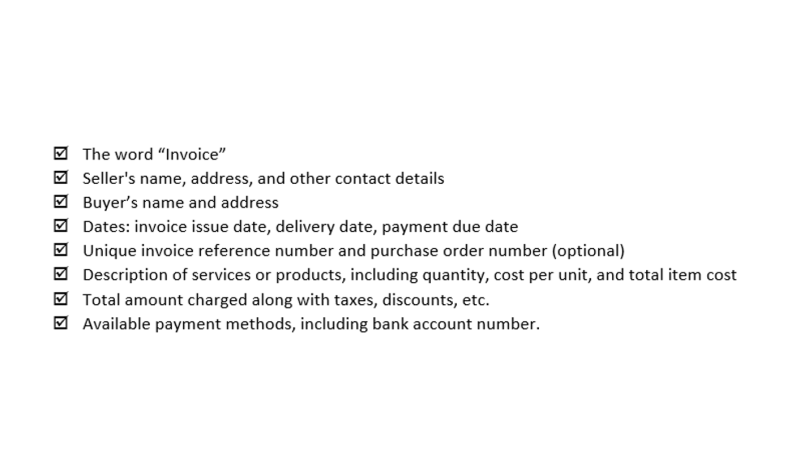In general, bookkeeping should take about an hour each month. In this amount of time, a clinician can reconcile and categorize their expenses, decide if their current expenses are worth it, and plan for the next month’s income. In this episode, Gordon and accountant Julie Herres discuss common mistakes private practice owners make in regard to accounting. Some standard numbers every owner should know are how much you are bringing in, your overhead, variable costs, and how much you need to take home each month. Another common mistake private practice owners make is not spending enough money?! Julie explains how essential it is to start spending money in order to make more money.

Keep your practice and personal records separate
They might also have to address denied claims and clients who just do not pay. Use that information to anticipate slower times of year so you can plan ahead.Set goals to increase profit. Now that you know where you stand, decide if you want to add sessions, diversify your income streams, or adjust your rates. While every therapy practice has different needs, there are some signs you’re probably ready to outsource your bookkeeping.
Save time and money, so you can focus on being a therapist
In other words, if you do your accounting properly, you wind up saving money. In fact, by positioning yourself in a place where you can be in constant connection with your real financial situation, your sense of responsibility and ownership will solidify even more. Notice how these are not exactly related to numbers or your ability to do math.
- A better idea though is to invest in some sort of accounting or bookkeeping application/software.
- When a business is an S-Corp, they pay themselves a “reasonable salary” (taxed money) and can take owner distributions from their business that are not taxed.
- Private practices owners tend to take money out of the business when they need it.
- It requires jumping through hoops for certification and approval, plus you need to meet specific requirements to submit bills.
- If you are using an application like Freshbooks or Quickbooks, you can get a balance sheet report.
- Heard is built specifically with therapists in mind and offers personalized bookkeeping and tax services (with real humans!).
Budgeting and tracking
Cheaper is not always better when it comes to renting space. You could also get a shorter lease so that way, the commitment will not hold you back when your practice starts to grow. You could also use an “old school” paper accounting journal.
- In 2021, The Department of Health and Human Services Office for Civil Rights handed out penalties totaling $15 million.
- Private practice counseling firms have unique challenges when it comes to cash flow.
- What this will do is give you a snapshot of your assets, liabilities and equity.
- Now that you know where you stand, decide if you want to add sessions, diversify your income streams, or adjust your rates.
- Use this cheatsheet to maximize your deductions and save money on taxes for your therapy practice.
View Private Practice Taxes
For me, when I went into private practice, I knew how to balance my checkbook, but that was about it! But if you break it down into simpler terms it a little easier to understand. Unless you had some coursework as an undergraduate in accounting or bookkeeping, bookkeeping for therapists most of us in the mental health fields have had little to no education or training on those subjects. I know that was true for me. I do well just to keep my checkbook balanced! Some basic accounting practices and knowledge was something I had to learn.

Looking at your balance sheet, income statement, and statement of cash flows each month keeps you aware of your current revenues, expenses, receivables, and payables. It also helps you spot potential problems before they become serious ones and gauge your progress toward your financial goals. Many accounting software programs, like Sage, claim to protect your client’s data and ensure proper accounting of your practice. Others, like QuickBooks Online, a highly-secure platform, are transparent in that they don’t comply with HIPAA standards. Under the Health Insurance Portability and Accountability Act (HIPAA), mental health professionals face strict data security regulations.

Intangible assets are things like money owed to you and even the values of potential appointments on your calendar that you have not had yet. When you add the value of all those together (tangible and intangible https://www.bookstime.com/ assets) the number you get is what is your total assets (keep this in mind). And from a business accounting standpoint, that big lump sum number is what you can potentially pay yourself from.
Private Practice Taxes: What Should You Know?
- Typically this comes out of the profit or net income you make from your business.
- Use that information to anticipate slower times of year so you can plan ahead.Set goals to increase profit.
- A few of our team members are affectionately called “the cleaners” and they love to clean up a messy set of books.
- If you were to scale it times ten, you would need a bigger space and admin.
- Also things like credit card balances or loans for equipment make up your liabilities.
- Equity and liabilities are terms that are used to describe how all of your assets interact with each other.
We help you with choosing the right accounting method, recognizing income, preparing 1099s, and much more. Your profit and loss statement can be used to let you know your “profit margins”, which is the percentage of profit made from each session. It’s almost impossible to bring on new employees or clients if your books are a mess.